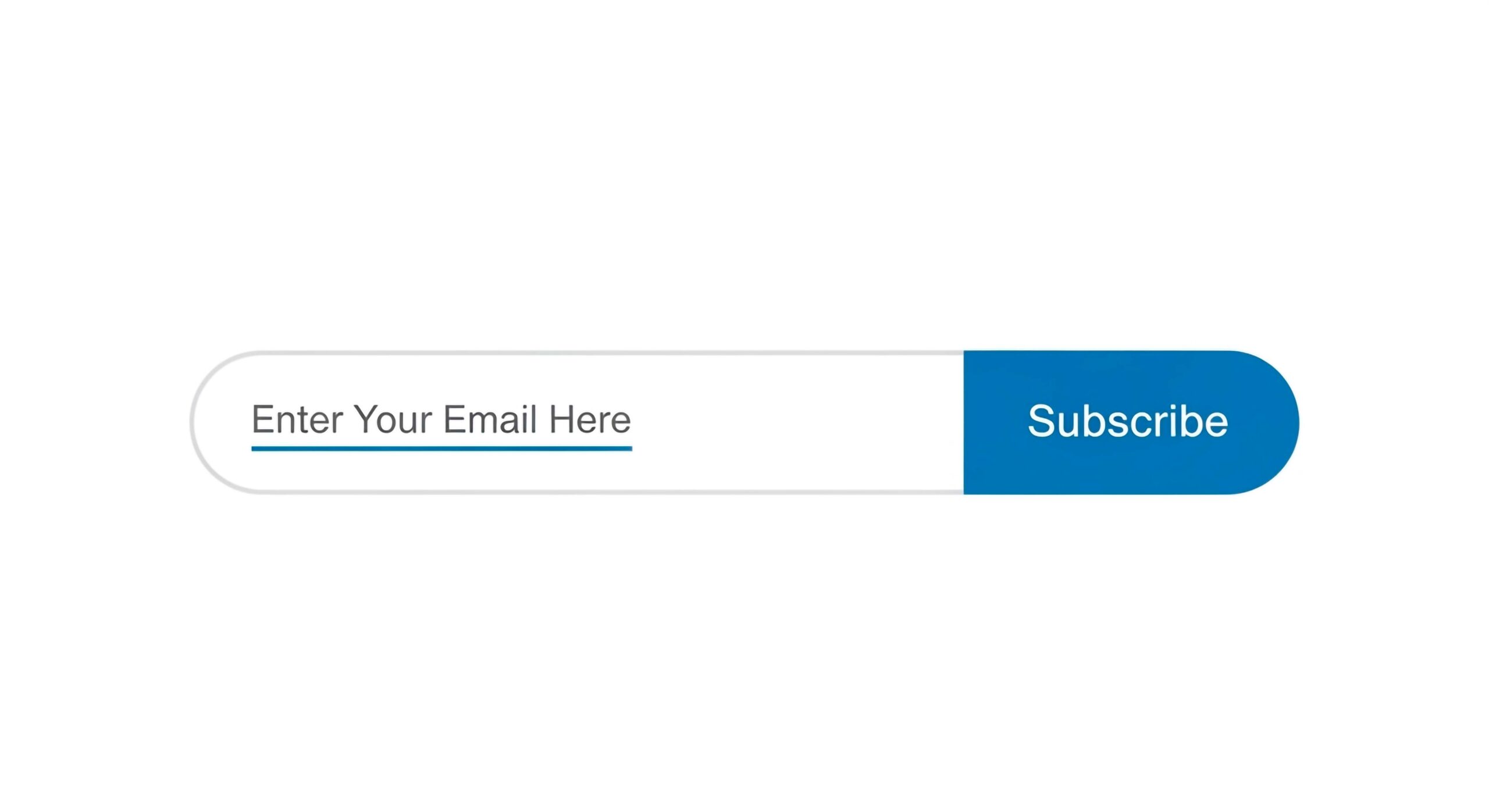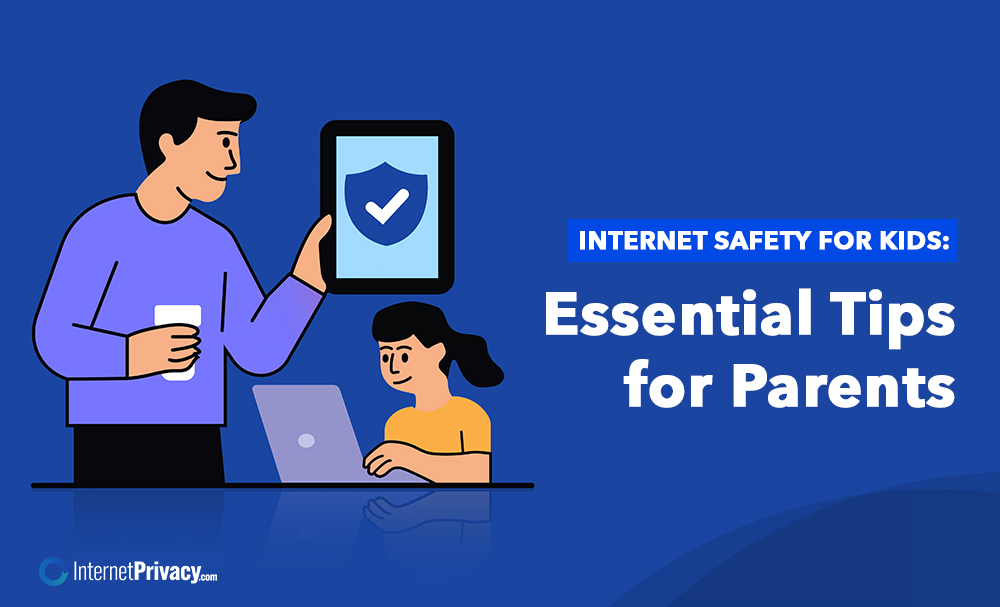How To Block TruthFinder: A Quick Guide
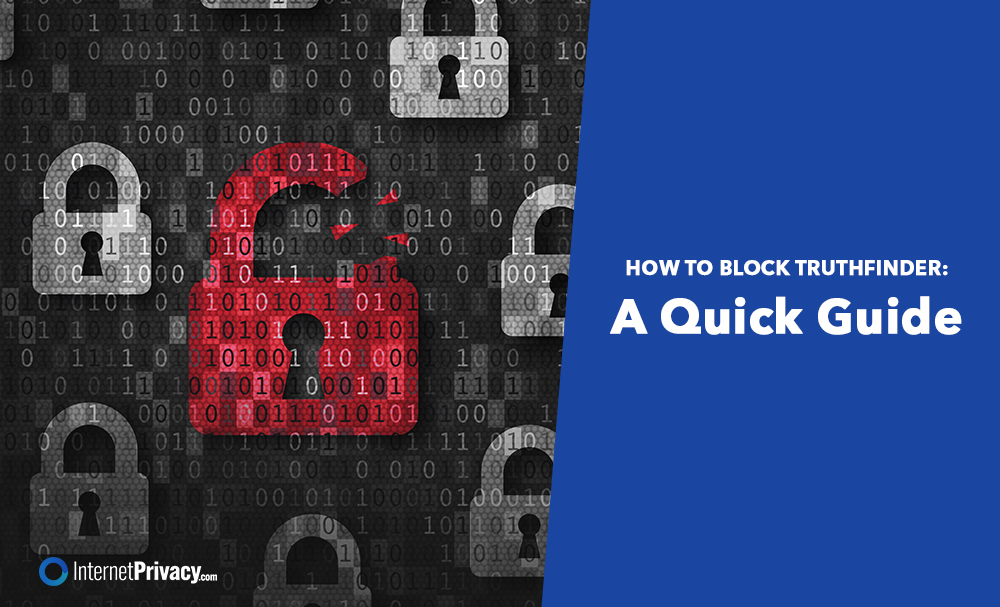
This article will teach you how to block TruthFinder so you can keep your data private.
TruthFinder is one of many data broker sites that enable users to access various details about individuals, including contact information, address history, social media profiles, and even criminal records.
However, some individuals may want to block their information from being displayed on TruthFinder due to privacy concerns, the potential for inaccurate data being displayed, and the risk of unwanted contact.
To do so, there are two primary methods: contacting Truthfinder directly, which might require identity verification, or using third-party services designed to block personal information on TruthFinder and similar search sites.
By doing this, people can regain control over their online presence and safeguard their privacy. Additionally, individuals can limit their online data by opting out of data brokers, adjusting privacy settings on social media, and being cautious about what they share online.
We offer monitoring of public data tools and removal of your personal information online so you can better protect your identity. Contact us today at 866-349-0130 to learn more.
What Is TruthFinder?
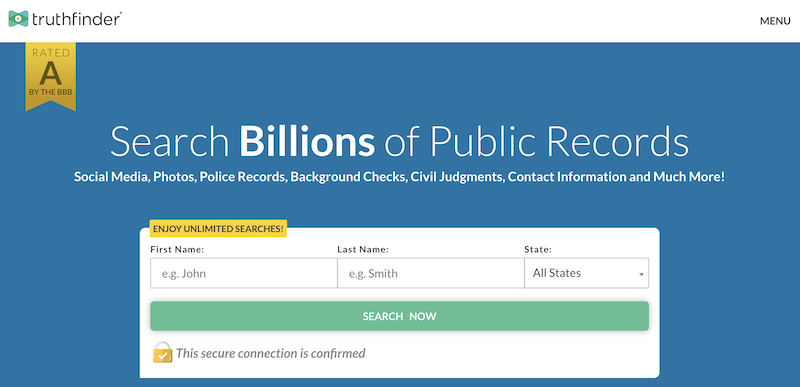
TruthFinder is an online public records search service that offers access to various information, such as criminal records, court records, background checks, and contact details. It allows individuals to search for others, view public data tools, and obtain comprehensive data.
This service can be beneficial for multiple purposes, such as conducting background checks, verifying identities, or reconnecting with old friends or family members. However, it is essential to exercise caution and respect privacy when using TruthFinder or other data brokers.
Before utilizing such platforms, it is crucial to consider the consequences of accessing personal information and ensure that it is done responsibly and lawfully.
Why Would Someone Want to Block the TruthFinder Site?
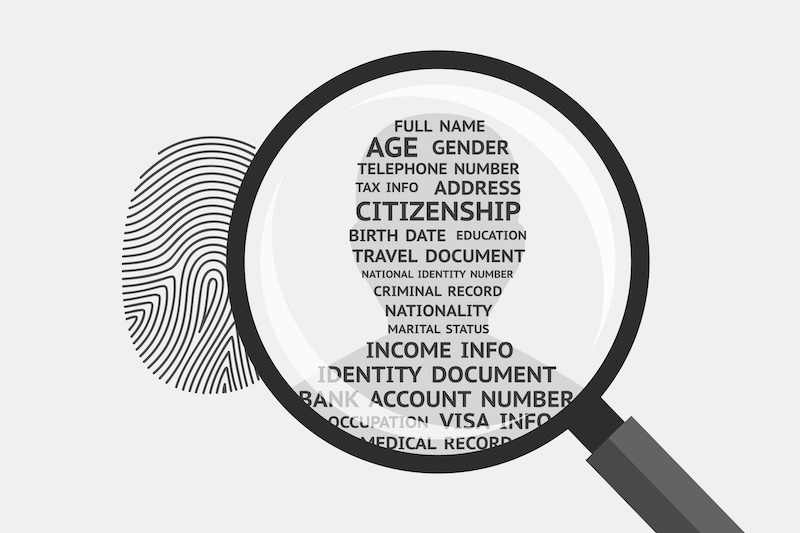
In today’s digital age, our personal information is more accessible than ever. With just a few clicks, anyone can discover sensitive details about someone through online background check services from search sites like TruthFinder.
However, there are valid reasons why someone may want to block their information from being displayed on these sites.
1. Privacy Concerns
Privacy concerns are a significant reason why individuals may want to block information from TruthFinder. To address these concerns, here are some steps to take:
- Visit the TruthFinder website and locate your contact information.
- Reach out to TruthFinder directly through their customer support channel.
- Request to have your personal information removed from their database.
It’s important to note that while blocking TruthFinder can help protect your privacy, it’s also crucial to take additional steps to safeguard your personal information online.
Being mindful of what you share online, using privacy settings on social media, and opting out of data broker databases are alternative measures to consider.
2. Inaccurate Information

Having inaccurate information about you on TruthFinder and the web can be frustrating, but there are steps you can take to address the issue:
- Review and verify the information.
- Contact TruthFinder to request that the data be removed.
- Provide evidence that the information is incorrect.
- Follow up to make sure the data has been removed.
Our internet privacy experts will protect you from identity theft, phishing attacks, data breaches and other online threats. Call us at 866-349-0130 for more information.
3. Unwanted Contact
Unwanted contact from TruthFinder can be blocked by following these steps:
- Begin by visiting the TruthFinder website and accessing your account.
- Navigate to the Settings section of your account.
- Look for options related to blocking or restricting unwanted contact.
- Activate any features or settings that block or filter messages or calls from TruthFinder.
If the above steps do not resolve the issue, consider contacting TruthFinder directly through their customer support channels and requesting assistance with blocking unwanted contact.
The TruthFinder Opt-Out Form
You can also remove your full name, phone numbers and other data from the site by using the TruthFinder opt-out form. TruthFinder requires you to follow these steps to complete this process.
Step 1: Go to the opt-out page.
Start on the TruthFinder homepage here. At the bottom of the page, in the footer section, click TruthFinder Resources. Then, click Do Not Sell or Share My Personal Information.
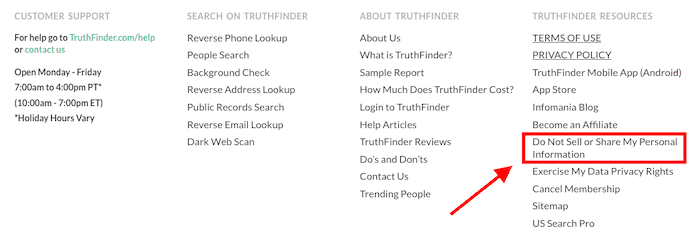
Step 2: Go to data-suppression tool.
On the right side of the page, find the Public Data Tools section. Click the link that says Suppress Your Public Data.

Next, click the Manage My Suppression Rules link.
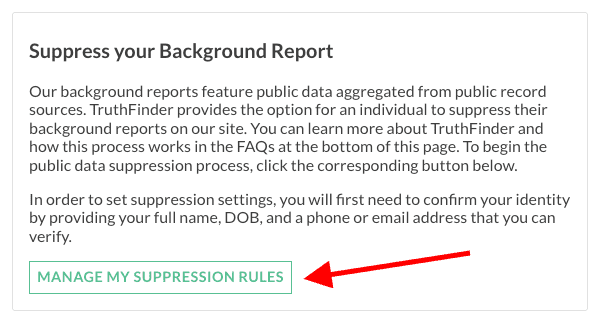
Step 3: Complete the email verification.
In the dedicated box, enter your email, then click Continue. This step requires you to verify your email before you continue.
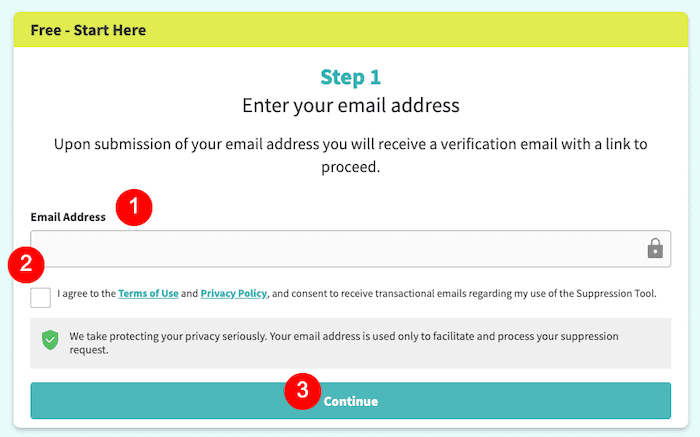
Check that the site sent you the email verification message. It should only take a few seconds to receive it. If you don’t see it, check your spam folder.
Click the Verify Email button to proceed.
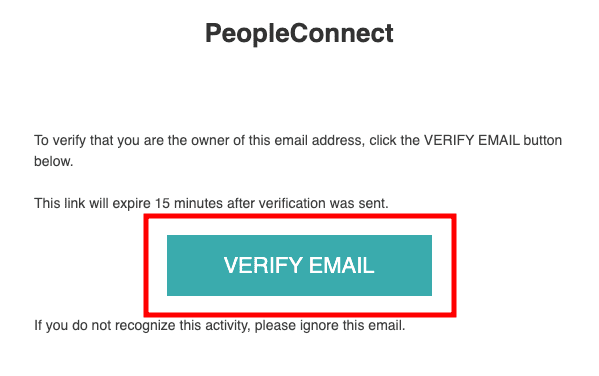
Step 4: Complete the opt-out form.
Once you verify your email, you’ll be automatically directed to the opt-out form. Enter your birthdate in the dedicated spot, then click Continue.
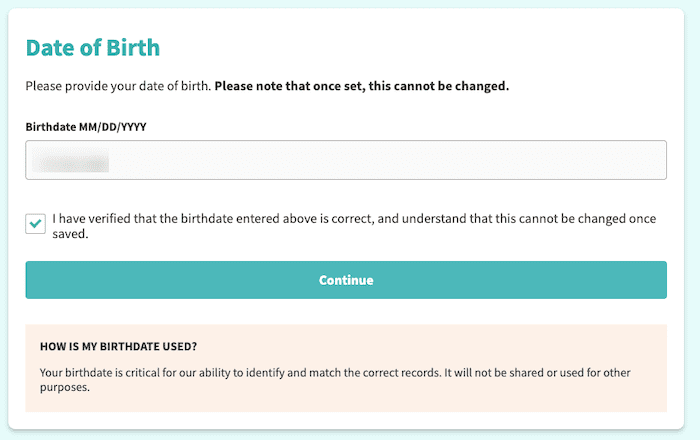
Then, enter your full name, check the verification box, and click Continue.
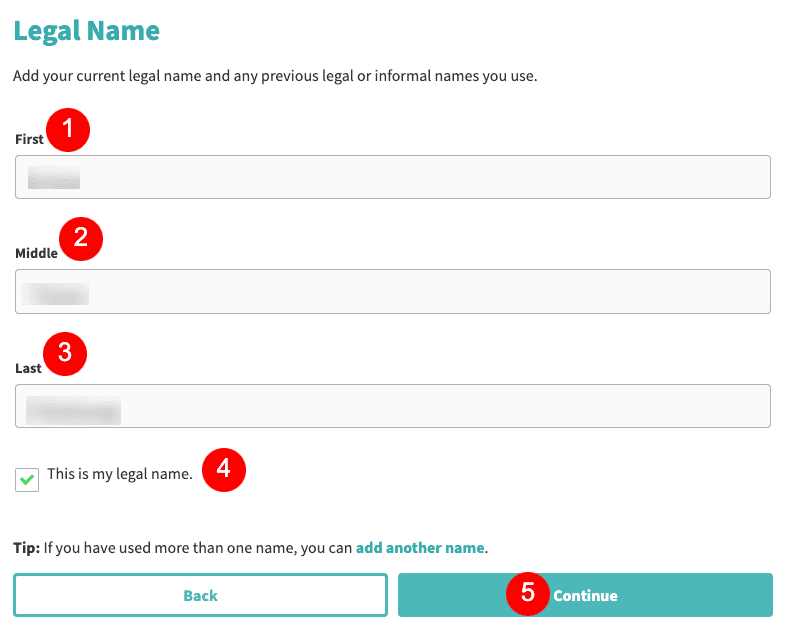
Step 5: Find and select your record.
Click on the record that includes your information. Then, click Continue.
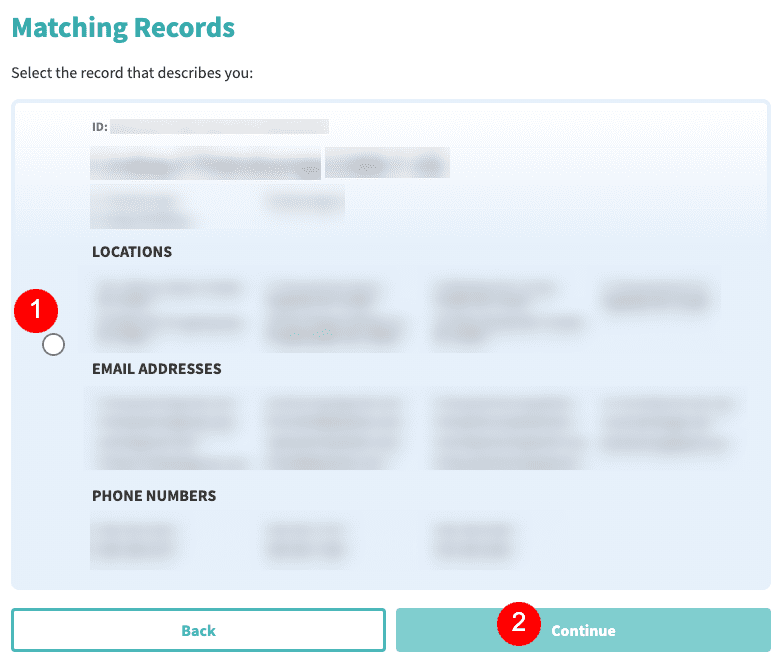
Step 6: Complete the verification method.
If the email address in the record matches the address you provided to verify your email, you’ll be able to move forward. Click Continue to keep going.
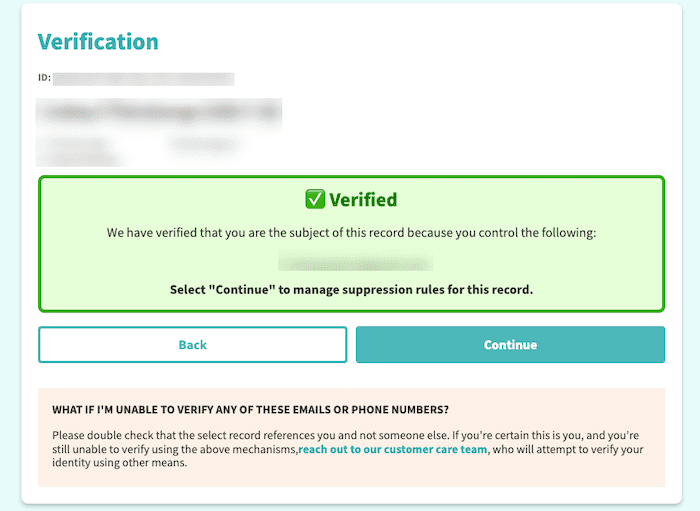
Step 7: Suppress your data.
Click the drop-down menu under Desired Behavior and select Suppressed. Click Save.
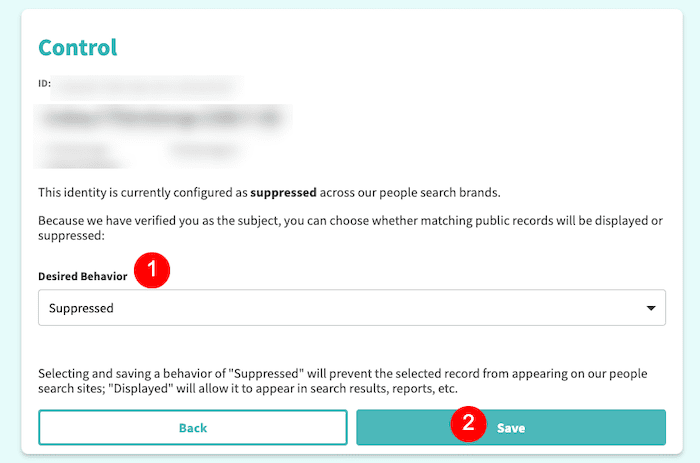
At this point, the opt-out process is complete.
Using a Third-Party Service To Protect Your Data

In the above sections, we walked you through the steps of contacting TruthFinder directly. But if that TruthFinder opt-out process doesn’t have the intended effect, you may need to use a third-party provider for content removal. Here are the steps to follow:
- Research reputable third-party services that specialize in opting out of data broker websites.
- Select a service that aligns with your needs and preferences.
- Sign up for the chosen service and provide the necessary information.
- Follow the instructions provided by the service to initiate the blocking process.
- Monitor the progress of the blocking request and follow up if necessary.
We work on behalf of our clients to monitor their online data and remove personal information from the internet. Give us a call at 866-349-0130 to learn more.
What Are the Alternatives to Blocking TruthFinder?

While blocking TruthFinder may seem the easiest solution to protect your online privacy, other alternatives are worth considering.
Opt-Out of Data Broker Sites
Opting out of data broker websites is a crucial step in protecting your privacy. Here are the steps to follow:
- Start by researching and identifying the major sites that collect and sell your personal information.
- Visit the websites and look for their opt-out options or privacy policies.
- Follow the instructions provided by each data broker to opt out. This may involve filling out an online form, providing your personal information for verification, and submitting your request to remove your data.
- Keep records of your opt-out requests, including confirmation emails or reference numbers, for future reference.
- Regularly check back to ensure that your information has been removed, and continue to opt out of any new sites you come across.
Do you need help removing your personal data from people search databases and online search results? Get started for free with a quick personal data scan.
Use Privacy Settings on Social Media

Using privacy settings on social media is an essential step in protecting your personal information. Here are some steps to follow:
- Review Your Privacy Settings: Go through the privacy settings on each social media platform you use and customize them according to your preferences.
- Limit Profile Visibility: Make sure your profile is only visible to your friends or connections and not to the public.
- Control Who Can See Your Posts: Adjust the settings so only your approved friends or connections can see your posts.
- Manage Tagged Photos: Enable the option to review and approve tags before they appear on your profile.
- Be Cautious With Third-Party Apps: Limit the information you share with third-party applications and review their privacy policies.
Check out our article with more than 7 ways to protect your privacy online.
Be Mindful of What You Share Online
Regarding online privacy, you must be mindful of what you share. To help protect your privacy, here are some steps you can take:
- Think Before You Post: Consider the potential consequences of sharing personal details, photos, or sensitive information.
- Limit Personal Information: Avoid sharing your full name, address, phone number, or financial details unless necessary.
- Regularly Audit Your Online Presence: Search for yourself online and remove any personal information that you do not want to be publicly available.
By being mindful of what personal data you share online, you can better protect your privacy and reduce the risk of your information being accessed or misused.
Our Team of Professionals Can Help Keep Your Data Safe

The opt-out process of TruthFinder and other popular people search sites can be frustrating. Even if a site has a laid-out opt-out process to follow, it can take a long time to complete, or your data could end up back on the site before you know it.
Having your sensitive information — data of birth, arrest records, full legal name, phone numbers and more — so easily accessible can lead to all sorts of criminal activity.
At InternetPrivacy.com, we offer removal services to get rid of your personal information and help you protect your identity online. Our services include deep web scans, ongoing monitoring and detailed reporting.
You deserve to protect your personal information online. To keep it from getting into the wrong hands, you can trust our decade-plus of experience defending individuals and businesses on the internet.
Call us at 866-349-0130 for a free consultation.

